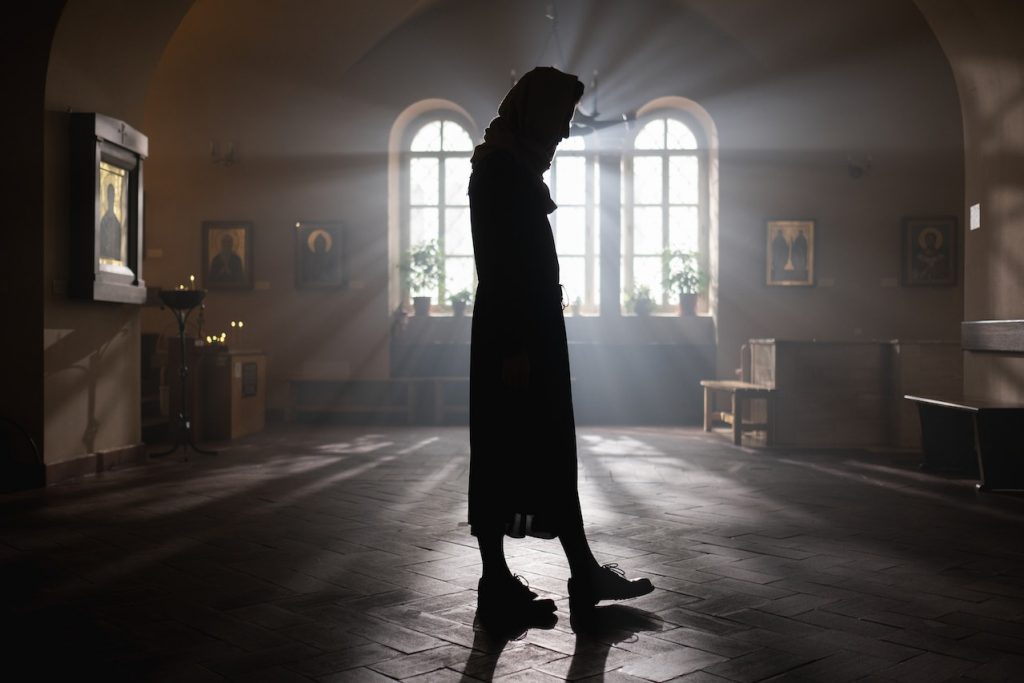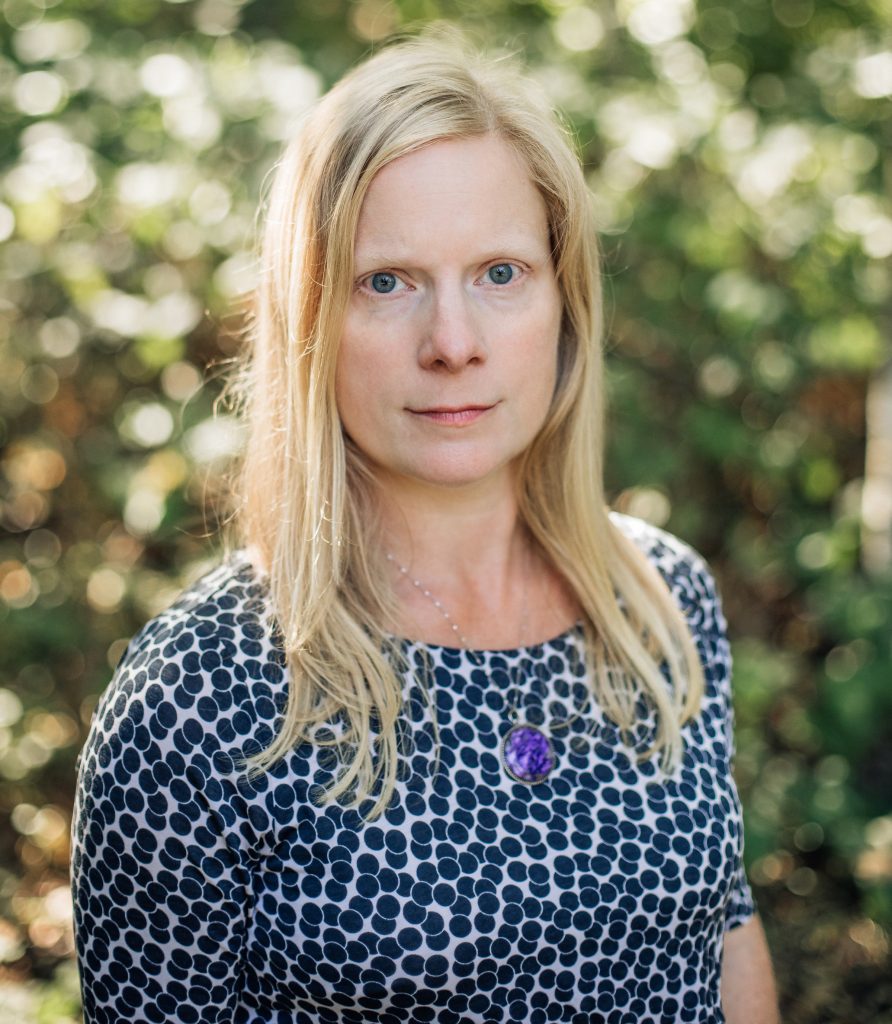The Status of the Reinstitution of Deaconesses in the Orthodox Church Today: Consecrated in Africa, Considered Elsewhere
Carrie Frederick Frost

Much of my scholarship is on the topic of deaconesses and I am chair of the St. Phoebe Center for the Deaconess, a US nonprofit dedicated to the reinstitution of deaconess in the Orthodox Church, because I perceive these possible changes to be a fulfillment of the Church’s teachings that will help to create a more robust and authentic Church. In so doing, I join more than a century’s worth of work in the Orthodox Church to see this order populated once more; work that is supported by church-convened conferences, groups, scholars, and laypeople and clergy alike, based around an argument of historical precedent and present need, both of which have been well-documented elsewhere so I will not address them here.
All this support for deaconesses in the Orthodox Church, and yet there are no deaconesses. Except for one tantalizing exception: there are Orthodox deaconesses in Africa.
The Orthodox Church is made up of autocephalous, self-governing, local churches, and one of these churches is in Africa: the Patriarchate of Alexandria. In 2016, the Synod of Alexandria discussed and affirmed the possibility of deaconesses in Africa. In February of 2017, the Patriarch of Alexandria, His Beatitude Theodoros II, Pope and Patriarch of Alexandria and All Africa, consecrated five women as deaconesses in Democratic Republic of Congo.
The deaconesses were to help with missionary efforts including adult baptism, marriage, and catechism. These deaconesses were not ordained into a major order (cheirotonia) because their consecration took place at the end of Liturgy (rather than during it) and because the photographs show the laying on of hands by Patriarch Theodoros happening at his throne, rather than at the altar (as during an ordination). Instead, it is likely understood that these women were blessed into a minor order (cheirothesia), more like the sub-diaconate. It is notable, though, that these women are referred to as “deaconesses,” not sub-deaconesses.
The Agency of Local Churches
The Alexandrian Patriarchate’s decision to create deaconesses was based in part on its interpretation of the documents from the 2016 Holy and Great Council held on Crete, attended by twelve of the autocephalous churches. These documents include several statements supporting the agency of local churches, including: “Each local Church as she offers the holy Eucharist is the local presence and manifestation of the One Holy Catholic and Apostolic Church.” The Alexandrian Patriarchate took this and other statements as affirmation of the agency of expression of the local church and tacit approval to minister to its unique local needs by reinstituting deaconesses.
It became widely known that the original intention of Patriarch Theodoros was to ordain these women to the diaconate—which would have been faithful to tradition because this was historically an ordained order—but donors outside of Africa threatened to cut off income streams to the African church if the Patriarch went ahead with ordinations. The patriarch “consecrated” these women as deaconesses as a concession to this pressure, rather than ordaining them. Patriarch Theodoros continued to consecrate more deaconess in Africa over the following three years, including at least two women in Sierra Leone in 2018.
In 2020 Patriarch Theodoros sent an official greeting to a conference in Greece dedicated to the reinstitution of the order of deaconesses. in which he stated that the Patriarchate’s program of reinstituting the order of deaconesses was “suspended for the time being“. This is church lingo for saying that the program of deaconesses in Africa is over—it appeared that the move in Africa to revive the diaconate for women had come to a halt.
The presence of deaconess in Africa raised the question of their status as precedent for other Orthodox churches. Generally, supporters of reinstituting deaconesses in the rest of the Orthodox Church cite the African deaconesses as a valuable and authoritative precedent of one autocephalous church reinstituting this order. In fact, the lack of advance notice to the rest of the Orthodox world illustrates the degree to which autocephalous Orthodox churches may operate without the approval or permission of other autocephalous churches; the African church did not see the need to communicate with other churches or constituencies because it understood its own authority as final.
In terms of the deaconesses in Africa as precedent for the rest of the world: It is meaningful to the rest of the Orthodox Church that deaconesses were created at all in the twenty-first century and created to address unique local needs, thus affirming the agency of the autocephalous churches. And it will certain be an even stronger witness when a woman is ordained as a deaconess in Africa. There is word from Africa that the program of reinstitution of deaconesses will continue, with ordinations in the near future. It is my fervent prayer and hope that this comes to pass.
Lessons to Learn
There are lessons to learn from Africa. When it comes to courageous change in the church, money is, unfortunately and sadly, a big concern. Rather than focusing on the building up of the body of Christ, some are focused on controlling the purse strings to prevent or punish change. Another lesson from Africa is that reinstating deaconesses elsewhere will require courageous and steadfast bishops who are willing to do what is right, whatever the consequences. Reinstating deaconesses will ideally take place within an enthusiastic wider church community that is prepared to support the bishops and deaconesses themselves. May these parameters be in place when the ordination in Africa takes place and when the next autocephalous church reinstitutes deaconesses.
These examples of flexible orders of women blessed by the church and created in response to local need stand as a reminder – and a model – of the local church’s ability to inaugurate offices that serve local needs and offer women a space in which to share their gifts within their church communities. Do we see this sort of Spirit-moved creativity as concerns women’s roles and contributions to the Orthodox Church taking place the United States? Even though women’s contributions and presence in the Orthodox Church has increased remarkably within my lifetime, I do not see creativity around women’s roles in the United States being exercised in a way comparable to Africa.
I am not suggesting that we necessarily export the Kenyan positions of Ecclesiarch or Preacher to the rest of the Orthodox world, but I am suggesting that the important precedent here lies not confined to deaconesses in Africa but rather in the broader realities around women in the church in Africa, in all their complexity. By paying attention to what is happening in Africa, those of us elsewhere advocating for women’s roles and deaconesses may gain a more realistic approach to the work ahead, but also a more imaginative one, which is creative, flexible, and responsive to local realities, all of which are signs of a living and life-giving Orthodox Church.

Carrie Frederick Frost
is an Orthodox Christian theologian, PhD, who teaches at Western Washington University and Holy Cross Greek Orthodox School of Theology. She is the author of the recent book on women in the Orthodox Church, Church of Our Granddaughters (Cascade, 2023), Book Reviews Editor for Journal of Orthodox Christian Studies, and Chair of St. Phoebe Center of the Deaconesses. She lives in the Pacific Northwest and is the mother of five and the grandmother of one.
Literature: Kyriaki Karidoyanes Fitzgerald, Women Deacons in the Orthodox Church: Called to Holiness and Ministry (Brookline: Holy Cross Orthodox Press, 1999);
Valerie A. Karras, “Female Deacons in the Byzantine Church,” Church History 73:2 (2004), 272–316; Kevin Madigan and Carolyn Osiek, Ordained Women in the Early Church: A Documentary History (Baltimore: Johns Hopkins University Press, 2005);
Evangelos Theodorou, Η «Χειροτονία» η «Χειροθεσία» των Διακονισσών [The “Ordination” or “Appointment” of Deaconesses] (PhD dissertation, Athens, 1954).
Cipriano Vagaggaini, Ordination of Women to the Diaconate in the Eastern Churches (Collegeville: Liturgical Press, 2013); John Wijngaards, The Ordained Women Deacons of the Church’s First Millennium (Norwich: Canterbury Press, 2002, 2011);
Phyllis Zagano, Holy Saturday: An Argument for the Restoration of the Female Diaconate in the Catholic Church (New York: Crossroad Publishing, 2000).